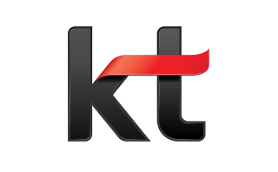
[Courtesy of SK Telecom ]
SEOUL -- SK Telecom tied up with two domestic companies to develop and operate a Web 3.0 digital asset wallet that allows users to store, transmit, and receive tokens issued by blockchain networks. Security will be strengthened by adding encryption technology to a method that does not store users' private keys.
SK Telecom (SKT) said the joint project with AhnLab Blockchain Company (ABC) and Atomrigs Lab is aimed at developing easy and safe wallet services. ABC develops a Web 3.0 wallet service. Atomrigs Lab specializes in decentralized applications based on privacy-preserving computation and Ethereum blockchain.
Web 3.0 is a new iteration of the blockchain-based World Wide Web that incorporates concepts including decentralization and token-based economics. Technologists have described Web 3.0 as a possible solution to concerns about the over-centralization of the web in a few big tech companies. Web 3.0 could improve data security, scalability, and privacy beyond what is currently possible with Web 2.0 platforms that center on user-created content uploaded to social media and networking services.
Web 3.0 wallets support encrypted web access and interact with decentralized applications (dApps) of various blockchains. Users enjoy much greater control over their data and privacy, and can extract utility and value. Web3.0 wallets are an ideal gateway to a whole host of crypto applications running on blockchains like decentralized finance (DeFi), gaming, and non-fungible tokens (NFTs).
SKT would link the Web 3.0 wallet service with mobile wallet platforms and digital asset-related services. "The current online environment is transforming into an era of Web 3.0 where users own and manage all their data. This Web 3.0 wallet joint project will be an important starting point for SKT to respond to the Web 3.0 market," SKT's digital asset head Oh Se-hyun said in a statement on July 11.
Atomrigs CEO Cheong Woo-hyun described the joint project as an important opportunity to spread decentralized private wallets on a large scale. "The biggest obstacle to the expansion of the blockchain ecosystem is personal wallets, which are very difficult to solve both security and convenience at once."
Copyright ⓒ Aju Press All rights reserved.



